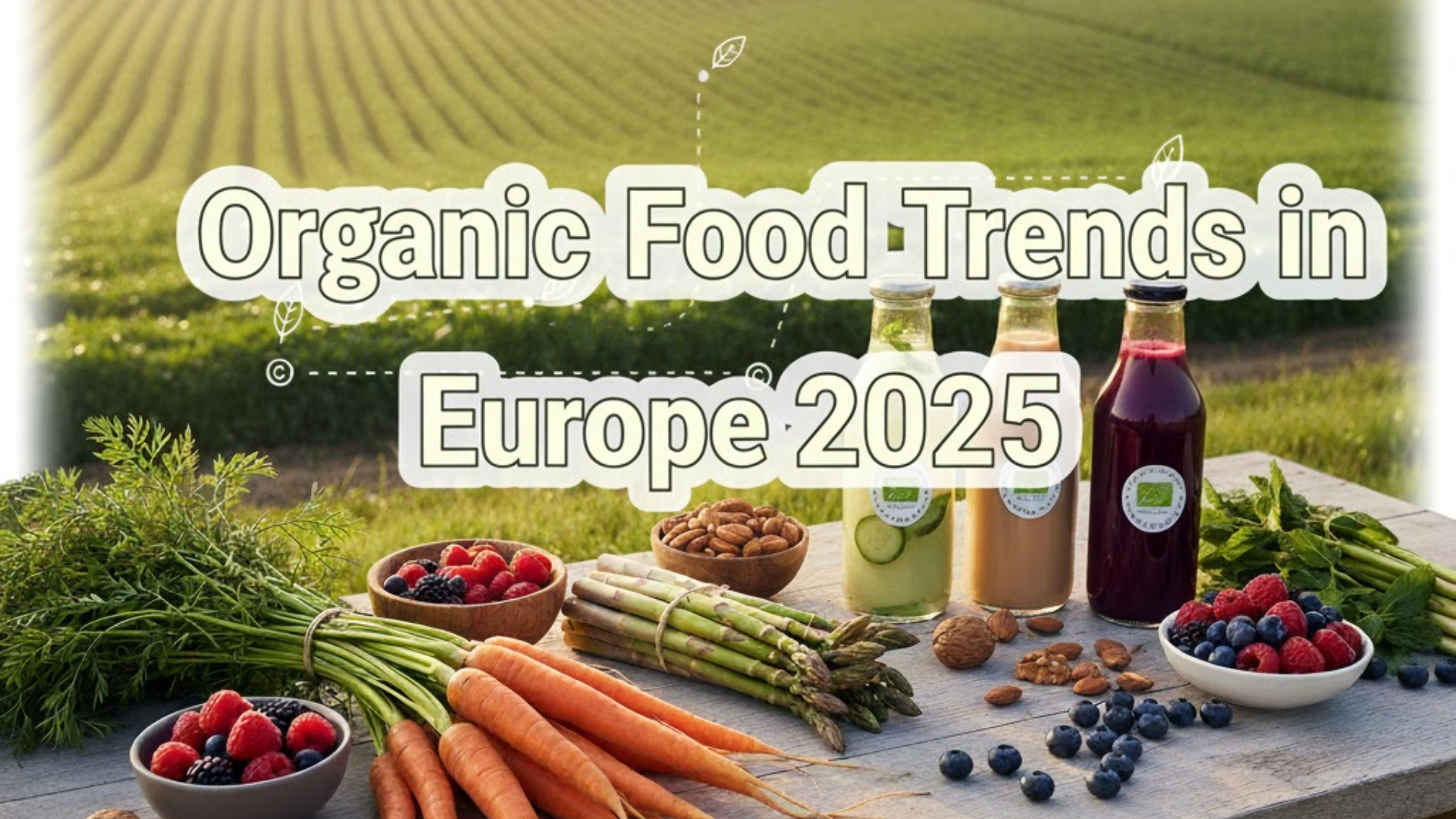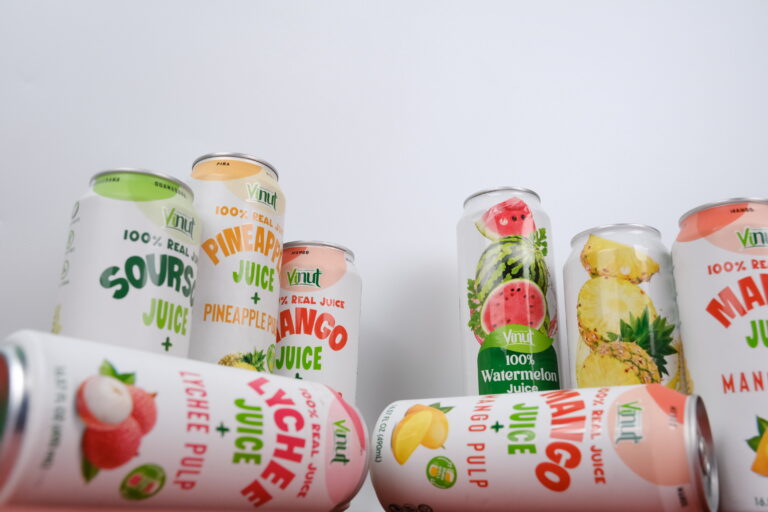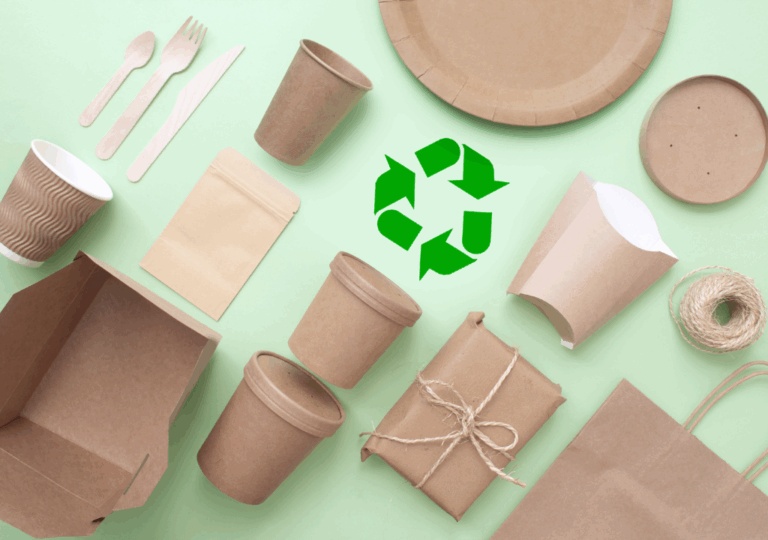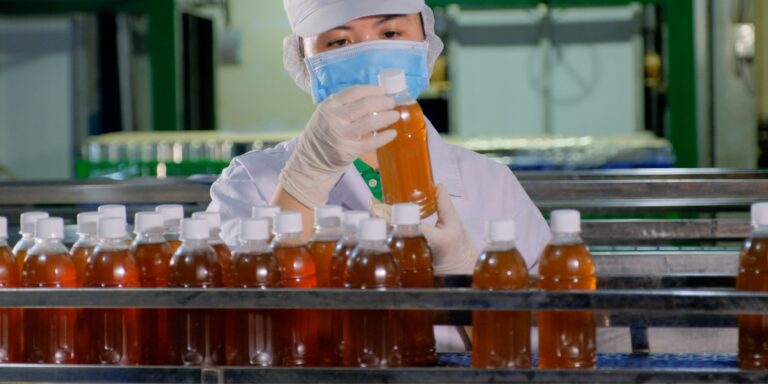Organic Food Trends in Europe 2025: How Sustainability Is Shaping the Future of F&B

Explore 2025’s leading organic food trends in Europe — transparency, plant-based growth, and regenerative farming shaping the future of sustainable F&B.
Organic Food Trends in Europe 2025: How Sustainability Is Redefining the Future of Food & Beverage
Organic is no longer a luxury — it’s a lifestyle. Across Europe, consumers are redefining how they eat and drink, placing sustainability, transparency, and wellness at the center of their daily choices. The latest organic food trends in Europe show how the continent is leading a new global movement that connects agriculture, nutrition, and climate responsibility.
According to Anuga’s report “Organic Trends in Europe”, the organic shift is deeply tied to the EU’s Farm to Fork strategy and the European Green Deal, both of which aim to reduce chemical inputs, promote regenerative farming, and make sustainable food accessible to all. For the global F&B industry, this transformation presents both a challenge and a massive opportunity.
From Farm to Fork: Building Trust in Every Ingredient
The foundation of organic food trends in Europe lies in transparency. Modern consumers want to know where their food and beverages come from — not only the country of origin, but the farming practices behind each ingredient. Smart packaging, QR codes, and blockchain-based traceability tools are helping brands prove authenticity and earn trust.
In the beverage sector, this transparency is now a key marketing driver. Consumers want to see “100% juice,” “no sugar added,” and “non-concentrate” on their drink labels. Companies that can verify sourcing and share clear stories about their ingredients — from organic mangoes to sustainably grown coconuts — are gaining a distinct advantage in the European market.

Organic in Public Spaces: Driving Everyday Change
A powerful element of organic food trends in Europe is the inclusion of organic meals in schools, hospitals, and community institutions. Governments are integrating organic procurement standards to support local farmers and improve public health.
This institutional adoption is transforming consumer behavior. Children in Germany or France, for example, are now more likely to grow up with an understanding of what “organic” truly means — clean, natural, and good for the planet. For beverage brands, this trend creates new opportunities in on-site catering, healthy vending, and ready-to-drink (RTD) options for schools and workplaces.
Clean Label and Regenerative Production: The Next Step
Clean labels have become a defining characteristic of organic food trends in Europe. Shoppers are actively rejecting additives, preservatives, and artificial colors. They prefer short ingredient lists and recognizable components that highlight natural origin.
At the same time, regenerative agriculture — which focuses on soil restoration, biodiversity, and carbon sequestration — is emerging as the new gold standard. It goes beyond being “sustainable” to being “restorative,” helping rebuild ecosystems and strengthen long-term food security.
For beverage manufacturers, sourcing fruit from regenerative farms or integrating circular packaging systems (such as recyclable PET and glass) not only aligns with EU priorities but also resonates with eco-conscious consumers.

What This Means for the Global F&B Industry
For international food and beverage producers, especially those in emerging markets, these organic food trends in Europe signal a shift in competitive advantage. Quality, transparency, and sustainability now outweigh price as key decision factors for European buyers.
Brands that can demonstrate certified organic sourcing, responsible production, and innovative product development will thrive. The beverage sector, in particular, offers immense opportunities for organic juices, coconut-based drinks, functional infusions, and RTD beverages that meet both health and ethical expectations.
Manufacturers are also encouraged to explore partnerships with European importers who specialize in sustainable product lines — ensuring that the entire supply chain supports the organic promise from farm to final sip.
Conclusion
The rise of organic food trends in Europe signals a deeper transformation across the F&B industry — where consumers seek authenticity, sustainability, and wellness in every sip and bite. For beverage brands, this means more than just going organic; it’s about crafting drinks that reflect clean sourcing, functional benefits, and mindful consumption.
👉 Contact Nam Viet Group today to explore OEM/ODM/private label solutions for organic, functional, and plant-based beverages — empowering global brands to lead the next wave of natural and sustainable refreshment.

